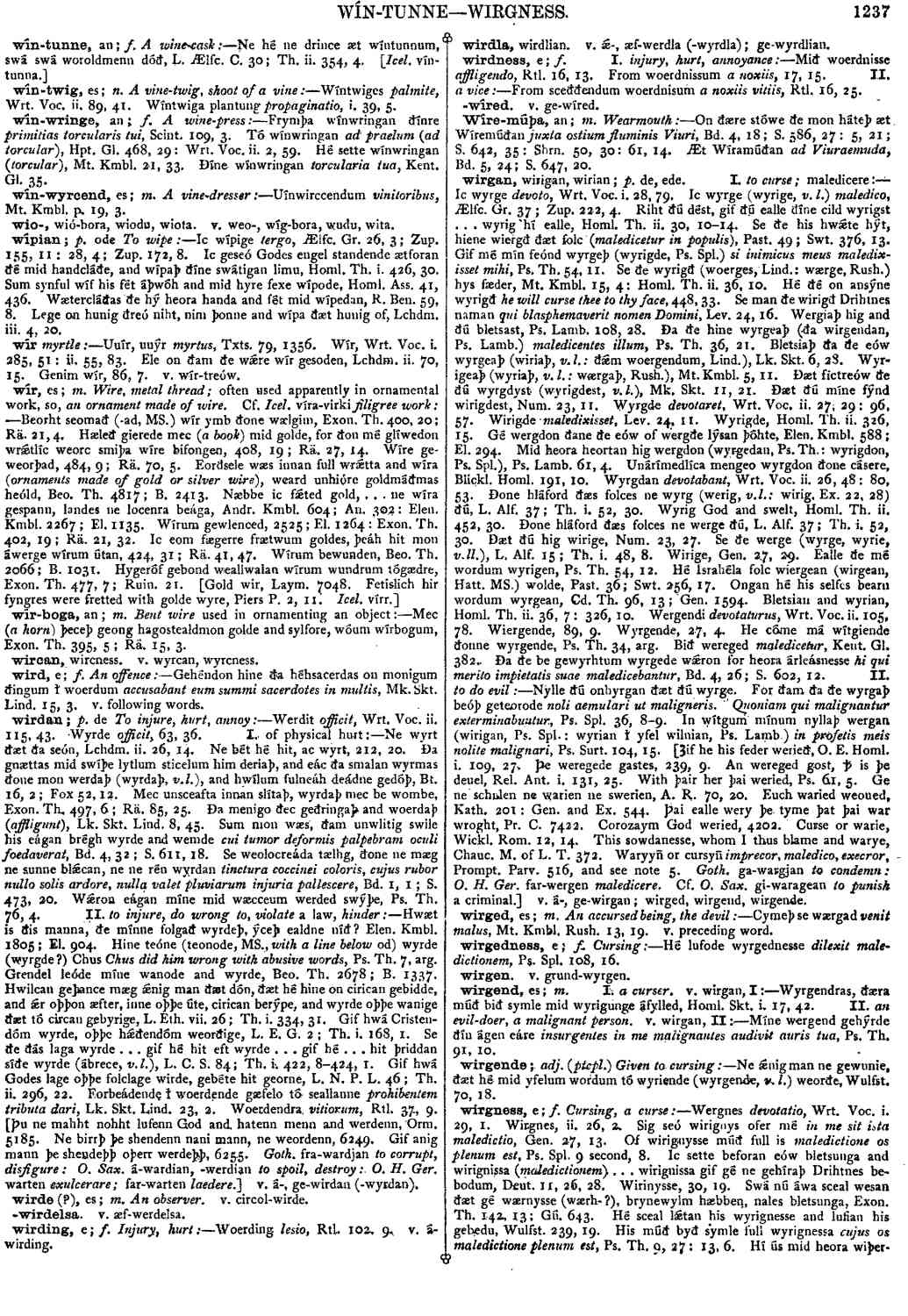wír
- noun [ masculine ]
-
Beorht seomað (-ad,
- MS.)
-
Hæleð gierede mec (
a book
) mid golde, for ðon mé glíwedon wrǽtlíc weorc smiþa wíre bifongen,- 408, 19; Rä. 27, 14.
-
Wíre geweorþad,
- 484, 9; Rä. 70, 5.
-
Eorðsele wæs innan full wrǽtta and wíra (
ornaments made of gold or silver wire
), weard unhióre goldmáðmas heóld,- Bec. Th. 4817; B. 2413.
-
Næbbe ic fǽted gold, . . . ne wíra gespann, landes ne locenra beága,
- Andr. Kmbl. 604; An. 302: Elen. Kmbl. 2267; El. 1135.
-
Wírum gewlenced,
- 2525; El. 1264: Exon. Th. 402, 19; Rä. 21, 32.
-
Ic eom fægerre frætwum goldes, þeáh hit mon áwerge wírum útan,
- 424, 31; Rä. 41, 47.
-
Wírum bewunden,
- Beo. Th. 2066; B. 1031.
-
Hygeróf gebond weallwalan wírum wundrum tógædre,
- Exon. Th. 477, 7; Ruin. 21.
Bosworth, Joseph. “wír.” In An Anglo-Saxon Dictionary Online, edited by Thomas Northcote Toller, Christ Sean, and Ondřej Tichy. Prague: Faculty of Arts, Charles University, 2014. https://bosworthtoller.com/35983.
Checked: 0